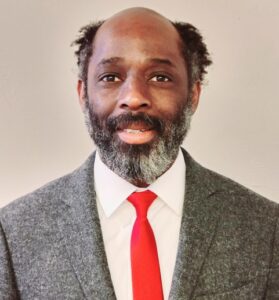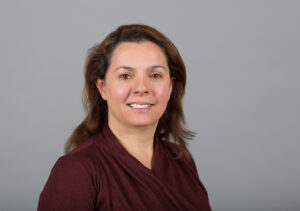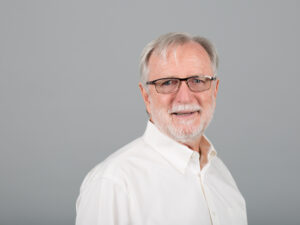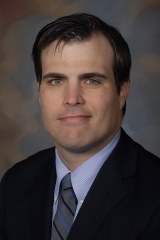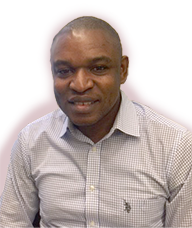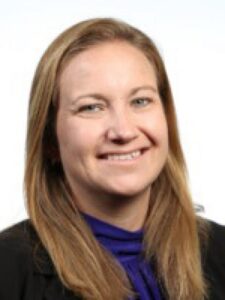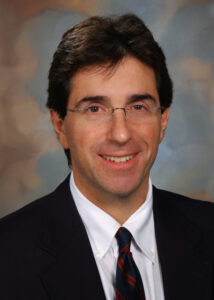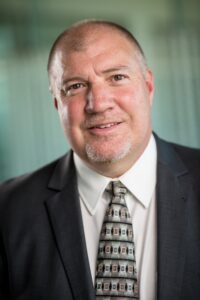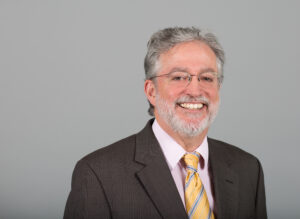Investigators
Ademuyiwa Aromolaran, Ph.D., RHRS, FAHA
Associate Professor
Affiliation and Leadership:
Ademuyiwa Aromolaran, Ph.D., FHRS, FAHA, is an Associate Professor in the School of Medicine Department of Surgery, Division of Cardiothoracic Surgery, with appointments in the Nora Eccles Cardiovascular Research Training Institute (CVRTI) and the Molecular Medicine Program.
Research Interests:
Metabolic disorders (obesity, diabetes, lipotoxicity, and inflammation) predispose to arrhythmias, and ultimately the transition to sudden cardiac death. This suggests that the obesity epidemic and related pathologies pose a significant public health problem, with over one-third of the world population being either overweight or obese. If we have a good understanding of the cellular signaling pathways that are adversely remodeled in metabolic disorders, we may be able to develop more effective therapeutic and dietary interventions that may help to improve the longevity and quality of life of patients.
To advance this, the current focus of Dr. Aromolaran’s lab is to identify and validate critical obesity-related cellular signaling pathways that lead to adverse cardiac electrical remodeling with implications for heart failure. Dr. Aromolaran’s lab has strong expertise in the use of state-of-the-art tool sets for integrative physiology and pharmacology to address fundamental questions in ion channel biology and how it relates to cardiac arrhythmias, as well as the interrelationship between structural and functional deficits in the heart, metabolic disorders, and other cardiovascular diseases.
Anna E. Beaudin, Ph.D.
Associate Professor
Affiliation and Leadership:
Anna E. Beaudin, Ph.D. is an Associate Professor in the School of Medicine Department of Internal Medicine, Division of Hematology and Hematological Malignancies. She is
Adjunct, Associate Professor, Department of Pathology, Division of Microbiology and Immunology.
Research Interests:
The overarching goal of Dr. Beaudin’s research is to define the contribution of fetal hematopoiesis, or blood production, to immune development, immune function, and disease susceptibility across the lifespan. Hematopoietic stem cells (HSCs) are responsible for sustaining production of all blood and immune cells across the lifespan. Dr. Beaudin’s research focuses on fetal HSCs and the process of fetal hematopoiesis, in which transient HSCs produce a series of distinct blood and immune cells that function to meet the discrete immunological needs of the fetus across development. Fetal-derived immune cells are fundamentally distinct from immune cells produced in adulthood — they defy conventional phenotypic and functional definitions, and seed developing organs where they persist across the lifespan of the animal to support tissue homeostasis. The Beaudin lab utilizes single-cell analysis, fate-mapping, and in vivo analysis to investigate how these specialized cells are made during fetal hematopoiesis, in order to gain insight into the role of these cells in tissue development, regeneration, and disease pathogenesis across the lifespan. We also investigate how perturbation of fetal hematopoiesis by extrinsic stimuli during development (infection, nutrition) shapes susceptibility to immune dysfunction by disrupting immune system establishment and reshaping the trajectory of adult hematopoiesis.
Sihem Boudina, Ph.D.
Associate Professor
Affiliation and Leadership:
Sihem Boudina, Ph.D. is an Associate Professor in the College of Health in the Department of Nutrition and Integrative Physiology, she holds an adjunct appointment in the School of Medicine in the Departments Biochemistry, Internal Medicine and Surgery.
Research Interests:
The broad area of the research conducted in the Boudina Laboratory is focused on the pathogenesis of obesity and cardiovascular disease (CVD). My group is particularly interested in deciphering the cellular events and the molecular mechanisms regulating adipocyte function and thermogenesis with a particular emphasis on how redox modulate thermogenesis. As obesity is a risk factor for CVD, we are also interested in understanding how this condition affects the myocardium.
Paul Bray, M.D.
Professor
Affiliation and Leadership:
Dr. Paul Bray M.D. is a Professor in the School of Medicine in the Department of Internal Medicine, Division of Hematology/BMT.
Research Interests:
Dr. Bray’s laboratory studies the role of platelets in cardiovascular disease, and disorders of bleeding and thrombosis. He is especially interested in the genetic basis of inherited platelet bleeding disorders and the inter-individual variation in platelet reactivity that contributes to normal hemostasis and pathologic thrombosis. His major areas of investigation include: (1) The use of state-of-the-art genomic, transcriptomic and bioinformatic technologies to identify and characterize novel genes and gene variants involved in platelet reactivity; (2) The role of microRNAs in human megakaryocyte and platelet biology; (3) Pharmacogenetics of platelet genes, genetic variants and therapies (e.g., hormone therapy and anti-platelet therapies); and, (4) Racial differences in platelet function. He has been continuously funded by the NIH for 31 years.
robert Campbell, Ph.D.
Assistant Professor
Affiliation:
Robert Campbell, Ph.D. is an Assistant Professor in the School of Medicine in the Department of Internal Medicine, General Internal Medicine Division.
Research Interests:
The primary goal of Dr. Campbell’s research is to determine how blood clots induce robust transcriptional and translational responses in immune cells, which promotes inflammation and thrombosis. During my training, I have focused on dissecting the mechanisms behind how cells alter coagulation under normal and disease situations. Recently, I have begun to examine how hemostasis and thrombosis in turn alters platelet and immune cell inflammatory response.
Amandine Chaix, Ph.D.
Assistant Professor
Affiliation:
Amandine Chaix, Ph.D. is an Assistant Professor in the Department of Nutrition & Integrative Physiology (NUIP).
Research Interests:
Dr. Amandine Chaix completed her MS in Immunology and Ph.D. in Biology in Marseille France. Amandine moved to the United States for her postdoc in Dr. Panda’s lab at The Salk Institute in San Diego. As a postdoc fellow, she explored the relationship between the circadian clock and nutrition. In particular, her work focused on exploring the benefits of time-restricted feeding (TRF) in preclinical models of obesity and metabolic disease. In January 2021, she became an Assistant Professor in the Department of Nutrition & Integrative Physiology at The University of Utah.
Owen Chan, Ph.D.
Associate Professor
Affiliation and Leadership:
Owen Chan Ph.D. is an Associate Professor in the School of Medicine in the Department of Internal Medicine, Division of Endocrinology and Metabolism.
Research Interests:
Dr. Owen Chan is renowned for his research in brain glucose sensing and the central mechanisms involved in the pathophysiology of hypoglycemia unawareness. His laboratory utilizes cutting-edge neuroscience techniques to study neural circuits that participate in the regulation of peripheral glucose metabolism and understand how brain metabolism is impacted by recurring exposure to hypoglycemia and diabetes. His research shows that during hypoglycemia, when glucose supplies become limited, the brain adapts to using other types of fuel substrates besides glucose to meet its metabolic needs. This in turn, prevents the brain from detecting a fall in blood glucose levels, making the patients unaware of the fact that their blood glucose levels are declining. These discoveries have paved the way to developing novel treatment strategies to reduce or prevent hypoglycemia in patients with diabetes.
Qi Chen, M.D., Ph.D.
Associate Professor
Affiliation and Leadership:
Qi Chen, M.D., Ph.D. is an Associate Professor in the School of Medicine in the Department of Surgery, Division of Urology, and Adjunct Associate Professor of Human Genetics.
Research Interests:
I was initially trained as a reproductive and developmental biologist, applying physiological and genetic approaches to study spermatogenesis, sperm behavior, embryo development and implantation using mouse models. My current lab research focused on the epigenetic information carried by sperm beyond DNA sequence. Research from my lab showed that paternally acquired phenotypes (e.g. metabolic disorders) from environmental stressors can be encoded in the form of sperm RNAs & RNA modifications as a ‘sperm RNA code’, which confer paternal phenotypes to the offspring via shaping early embryo development. Our ongoing works focused on addressing how small RNAs such as tRNA-derived small RNAs (tsRNAs) and rRNA-derived small RNAs (rsRNAs) in the sperm respond to environmental stimuli and how tsRNAs/rsRNAs regulate the trajectory of early embryonic development. We also developed novel analytical tools including SPORTS, PANDORA-seq, and Mass Spectrometry based methods to facilitate the study of emerging small RNAs such as tsRNAs/rsRNAs and their RNA modifications, and have begun to harness these tools to develop novel biomarkers such as the non-invasive diagnosis of diseases.
Stavros Drakos, MD., Ph.D.
Professor
Affiliation and Leadership:
Stavros G. Drakos, M.D., Ph.D. is a Professor (tenured) in the School of Medicine, Department of Internal Medicine, Cardiovascular Medicine Division. He is the Co-Chief of Heart Failure and Transplant Section and Medical Director of the Mechanical Circulatory Support (MCS) Program. He is also a Nora Eccles Treadwell Scholar and Director of Cardiovascular Research for the Division of Cardiovascular Medicine.
Adjunct: Associate Professor of Bioengineering
Research Interests:
Dr. Drakos’ research interests are focused on cardiac recovery associated with unloading and MCS in the chronic HF setting and the acute setting (i.e. acute HF/cardiogenic shock). He has published original work generated both in his lab and in the clinical arena which led to the establishment of the award-winning Utah Cardiac Recovery Program (UCAR). Dr Drakos’s team is utilizing clinical and biological information derived from studies in humans and small or large animal HF models to understand and manipulate cardiac recovery.
Micah Drummond, Ph.D.
Professor
Affiliation and Leadership:
Micah Drummond, Ph.D. is a Professor in Physical Therapy and Athletic Training and carries adjunct appointments in the Departments of Nutrition and Integrative Physiology, Pathology and Internal Medicine. He is also the Director of the Exercise Physiology and Mobility Lab within the Center for Clinical & Translational Science.
Research Interests:
Dr. Drummond’s research team focuses on mechanisms underlying physical inactivity-induced insulin resistance and loss of muscle mass in older adults. The research projects involve both clinical and mouse studies and hold to two general research themes:
1) Understanding the cellular and molecular mechanisms of skeletal muscle growth and metabolic function in aging muscle during disuse and recovery.
2) Utilizing therapeutic tools (nutritional, exercise, pharmacological) to limit muscle and metabolic deficits that occur with physical inactivity in aged muscle.
Katsu Funai, Ph.D.
Associate Professor
Affiliation and Leadership:
Katsu Funai, Ph.D. is an Associate Professor in the College of Health in the Department of Physical Therapy and Athletic Training.
Adjunct: Nutrition and Integrative Physiology; Diabetes and Metabolism Research Center
Research Interests:
Lipids are the most abundant organic constituents in many humans. The rise in obesity prevalence has prompted a need for a more refined understanding of the effects of lipid molecules on cell physiology. In skeletal muscle, deposition of lipids can be associated with insulin resistance that contributes to the development of diabetes. Muscle cells are equipped with the molecular machinery to convert and sequester lipid molecules, thus rendering them harmless. Induction of mitochondrial and lipogenic flux in the setting of elevated lipid deposition, such that occurs with exercise, can protect muscle from lipid-induced poisoning of the cellular machinery. We utilize cell lines, genetically-modified mice and primary muscle cells from human subjects to examine mechanisms whereby skeletal muscles develop and/or evade toxic effects of lipid influx.
Natalia Sara Harasymowicz, Ph.D.
Assistant professor
Affiliation:
Natalia Sara Harasymowicz, Ph.D. is a Research Assistant Professor in the Department of Orthopedics at the University of Utah.
Research Interests:
Dr. Harasymowicz obtained her Bachelor’s, and Master’s degrees at Jagiellonian University in Poland, and her Ph.D. in the Orthopaedic Department at the University of Edinburgh. She completed her postdoctoral work at Washington University in St. Louis. She has authored numerous publications and abstracts and presents regularly at national and international meetings. Dr. Harasymowicz’s laboratory studies Osteoarthritis (OA), a family of diseases characterized by the degradation of articular cartilage, joint inflammation, fibrosis of the synovium and joint fat pad, as well as alterations in bone structure. Tissue inflammation driven by immune cells is suggested to play an important role in exacerbating the pathogenesis of OA. Dr. Harasymowicz’s lab focuses on investigating the role of immune cells in the progression of OA and aging. We use interdisciplinary approaches including molecular, genetic, and cellular techniques to understand the precise role of the immune system in OA.
William Holland, Ph.D.
Assistant professor
Affiliation and Leadership:
William Holland Ph.D. is an Assistant Professor in the Nutrition and Integrative Physiology Department, he also holds an adjunct appointment in Biochemistry.
Research Interests:
Born in Maui and raised in Colorado, Dr. Holland completed graduate work at the University of Colorado, Colorado State University, and the University of Utah.
Drawn by the collaborative interdisciplinary research approaches used to study Diabetes, Obesity, and related co-morbidities, Dr. Holland brings to University of Utah a strong background in lipid signaling, insulin action, and diabetic physiology.
Jim Hotaling, M.D., MS, FECSM
Associate professor
Affiliation and Leadership:
Jim Hotaling, MD, MS, FECSM, is an Associate Professor of Surgery (Urology), Adjunct Assoc Prof of OBGYN. Co-director of Fertility Integrated Practice Unit. Director of Surgical Populations Analysis Research Core (SPARC). Director of Men’s Health. Director of Urologic Research. Co-Chair of DELPHI data science initiative.
Research Interests:
Dr. Hotaling’s lab seeks to understand and cure male infertility. Male infertility impacts 8% of all men with 1% of all men being azoospermic. Currently, the cause of male infertility remains unknown in at least 50% of cases and in 70% of men who are azoospermic. It is well documented that infertile men and their biological relatives have poor somatic health and a higher risk of cancer than fertile men but the cause remains unknown. Currently, there are only a few known genetic defects that cause male infertility such as karyotype abnormalities (Klinefelters) or Y chromosome microdeletions. Many other men who are infertile have private mutations where they may be the only man in the world with that specific mutation. Current options for treatment consist of hormone optimization with off-label drugs or surgery to find sperm and IVF/ICSI or to fix dilated veins around the testis. We use a variety of methods in computational genetics and scRNA sequencing (scRNAseq) in partnership with the Quinlan and Cairns lab to understand the causes of infertility and test the hypothesis of whether poor somatic health and infertility result from elevated de novo mutation rates that track in families. To test this we examine the mutation rate between the germline and somatic tissue in fertile and infertile men to understand how male infertility is related to somatic health. Our ultimate goal is to try to cure male infertility.
Elizabeth Leibold, Ph.D.
professor
Affiliation and Leadership:
Elizabeth Leibold, Ph.D. is a Professor in the School of Medicine in the Department of Internal Medicine, Division of Hematology.
Research Interests:
The overall goal of Dr. Leibold’s research is to understand the mechanisms regulating vertebrate iron metabolism. One project focuses on elucidating the mechanisms through which the key regulator of cellular iron metabolism, iron-regulatory protein(IRP2), senses and responds to iron content, and how dysregulation of iron metabolism as a consequence of IRP2 deficiency causes hematological and neurodegenerative diseases and diabetes. Another research project uses the nematode Caenorhabditis elegansas model genetic organism to identify novel iron-and oxygen-regulated genes and pathways that are relevant in vertebrates.
Elizabeth Middleton, M.D.
Assistant professor
Affiliation and Leadership:
Elizabeth Middleton, MD, is an Assistant Professor in the School of Medicine in the Department of Pulmonology, Critical Care Medicine.
Research Interests:
Dr. Middleton is an Assistant Professor on the Tenure Track in the Department of Internal Medicine, Division of Pulmonary Medicine. She completed her medical school, residency, and fellowship training at the University of Utah. She is mentored by Dr. Matthew Rondina and her laboratory is embedded within his space in Molecular Medicine. Her research interests are focused on understanding platelet and megakaryocyte reprogramming in the setting of sepsis and acute lung injury and the contribution of these cells to the pathophysiology of these clinical syndromes.
Patrice mimche, Ph.D.
Research Assistant professor
Affiliation and Leadership:
Patrice Mimche, Ph.D. is a Research Assistant Professor in the School of Medicine in the Department of Pathology.
Research Interests:
The mission of the Mimche laboratory research program is to perform innovative and cutting-edge research aimed at deciphering the biological processes that promote pathological tissue inflammation and fibrosis. Human fibrotic diseases are a major socioeconomic burden on modern societies and account for up to 45% of deaths in the developed world. My group is currently focused on elucidating the role of the axonal guidance cue Eph/Ephrin system in tissue inflammation and fibrogenesis across various organs including the liver, skin, lung, heart, and kidney. To achieve this goal, we utilize cutting edge molecular biology techniques, genetic manipulation of mice, animal modeling of disease, and translational studies in humans. Our ultimate goal is to develop therapy targeting this cell signaling system for the treatment of fibrotic diseases.
Shannon Odelberg, Ph.D.
Associate professor
Affiliation and Leadership:
Shannon J. Odelberg, Ph.D. is a Research Associate Professor in the School of Medicine in the Department of Internal Medicine, Division of Cardiovascular Medicine.
Adjunct: Neurobiology and Anatomy
Research Interests:
The Odelberg laboratory focuses on the role of the small GTPase ARF6 in inflammatory disease and cancer. ARF6 has been shown to play a role in both chronic and acute inflammatory diseases and conditions, including arthritis and sepsis, and in the establishment and metastasis of certain cancers, such as cutaneous and uveal melanoma. The activation of ARF6 helps drive these diverse conditions by promoting the trafficking of key signaling proteins to appropriate intracellular locations where signaling is enhanced. Blocking the function of ARF6 by gene knockout, RNA interference, or pharmacologic inhibition reduces trafficking and signaling of these key proteins and mitigates disease in animal models, thus making ARF6 a promising therapeutic target for several cancers and inflammatory conditions.
Joseph Palatinus, M.D., Ph.D.
Assistant professor
Affiliation and Leadership:
Joseph Palatinus MD, Ph.D. is a Research Assistant Professor in the Department of Internal Medicine, Division of Cardiovascular Medicine.
Research Interests:
Dr. Palatinus completed his MD and Ph.D. at the Medical University of South Carolina in Charleston, SC. He completed internal medicine residency at Beth Israel Deaconess Medical Center in Boston, MA, and a Cardiology- Critical care fellowship and postdoctoral studies with Dr. Robin Shaw at Cedars Sinai Medical center in Los Angeles. Dr. Palatinus joined the faculty in 2020 as an Assistant Professor in the Department of Medicine, Division of Cardiology within the Nora Eccles Harrison Cardiovascular Research Training Institute and Molecular Medicine. Dr. Palatinus’s research focuses on the roles of the alternatively translated Connexin 43 C-terminus in regulating protein trafficking in arrhythmogenic cardiomyopathy.
Aaron C. Petrey, Ph.D.
Assistant professor
Affiliation and Leadership:
Aaron C. Petrey, Ph.D. is an Assistant Professor in the Department of Pathology, Division of Microbiology & Immunology within the University of Utah School of Medicine.
Research Interests:
Inflammation is an integral part of our natural defense against infection, protecting us from a whole host of foreign organisms. However, when unchecked this innate immune process can work against us and instead lead to chronic disease. Our laboratory focuses on inflammatory bowel disease (IBD), a severe and chronic lifelong condition leading to relentless destruction of the gastrointestinal tract. IBD consists of two related but clinically distinct disorders (Crohn’s disease and ulcerative colitis) with a clear need for improved, innovative treatments. Immune dysregulation is a hallmark of IBD and our studies focus on multiple roles of extracellular matrix (ECM) components such as the glycan hyaluronan (HA) as an information-rich system that instructs cells and contributes to the progression and chronic nature of IBD. In response to tissue injury, HA acquires a unique `cable-like’ structure and is highly adhesive for naïve leukocytes and platelets, occupying an interface between inflammation and coagulation. Thrombotic events are characteristic extraintestinal features of IBD but the consequences of abnormal platelet responses and how platelets modify the immune response in IBD requires further study.
We seek to understand: 1) how does HA regulate hypercoagulability during inflammation; 2) how do platelets recognize and regulate inflammatory HA matrices; 3) what is the mechanism driving platelet hyperreactivity in IBD; 4) how do platelets modulate leukocyte recruitment and activation, and 5) what are the signaling pathways governed by HA. Our ultimate goal is to better understand how glycans modulate the immune system and leverage this knowledge for developing new therapeutics and diagnostic tools for IBD and other thromboinflammatory disorders.
Candace Reno-Bernstein, Ph.D.
Research Assistant professor
Affiliation and Leadership:
Candace Reno-Bernstein, Ph.D. is a Research Assistant Professor of Internal Medicine, in the Division of Endocrinology, Metabolism, and Diabetes.
Research Interests:
Broadly, Dr. Reno-Bernstein’s lab focuses on the complications associated with the treatment of diabetes. Hypoglycemia is common in people with insulin-treated Type 1 or Type 2 diabetes. When glucose levels are severe, hypoglycemia can be fatal. Furthermore, people with diabetes that experience severe hypoglycemia have an increased risk of a major cardiovascular event and cardiovascular mortality. Thus, we have 2 major goals: 1) Determine the mechanisms of severe hypoglycemia-induced mortality by looking at the role of fatal cardiac arrhythmias, and 2) Understand how severe hypoglycemia predisposes to worse outcome following a major cardiovascular event such as myocardial infarction.
Aylin Rodan, M.D., ph.D., FASN
Associate professor
Affiliation and Leadership:
Aylin Rodan, M.D., Ph.D., FASN is an Associate Professor in the School of Medicine in the Department of Internal Medicine, Division of Nephrology & Hypertension.
Adjunct: Associate Professor, Department of Human Genetics
Research Interests:
Dr. Rodan’s primary research focus is understanding signaling cascades regulating ion transport processes, particularly in the kidney, but also in other settings such as stroke, circadian rhythm and osmoregulation. Dr. Rodan’s laboratory uses genetic techniques in Drosophila melanogaster, physiology, behavior and biochemistry to understand the molecular basis of ion transport physiology relevant to human physiology and pathophysiology, including electrolyte and tonicity disorders and high blood pressure.
Matthew Rondina, M.D., M.S.
professor
Affiliation and Leadership:
Matthew T. Rondina, M.D., M.S. is a Professor in the School of Medicine in the Department of Internal Medicine, Division of General Internal Medicine. In this capacity, he provides consultation and specialty care for patients with thrombotic disorders. He also holds an adjunct appointment as Professor of Medicine and Investigator in the George E. Wahlen VAMC. He serves as the Precision Medicine Foundation for the Utah Center for Clinical and Translational Science (CCTS) and is the Director of the Molecular Medicine Program.
Research Interests:
Dr. Rondina is recognized for his work examining how systemic inflammatory disorders alter (or reprogram) platelets and their parent cell, the megakaryocyte. His laboratory focuses heavily on diseases where dysregulated inflammation drives host responses, regulating immunity and thrombosis. Dr. Rondina’s group couples mechanistic systems with in vivo models of thrombo-inflammation and clinical studies in human donors and patients.
Adrian Rothenfluh, Ph.D.
Associate professor
Affiliation and Leadership:
Adrian Rothenfluh, Ph.D. is an Associate Professor in the School of Medicine in the Department of Psychiatry.
Adjunct: Neurobiology & Anatomy; Human Genetics
Research Interests:
Dr. Rothenfluh’s lab is in the Department of Psychiatry and in the U of U Molecular Medicine Program housed in the Eccles Institute of Human Genetics building. Fittingly, we are interested in genes, molecular mechanisms, and neural circuits involved in behavior. Dr Rothenfluhs’ lab uses Drosophila as a model organism, and it turns out that they are more like us than one would have anticipated.
In the area of his main focus, addiction, for example, flies are like mammals: they dislike alcohol initially, but with experience, they acquire the taste for it. His lab aims to understand the mechanisms mediating these behavioral responses and changes. They also continue to investigate whether (and to show that) homologous genes are involved in human and Drosophila responses to this drug of abuse.
Jesse Rowley, Ph.D.
Assistant professor
Affiliation:
Jesse W. Rowley, Ph.D. is a Research Assistant Professor in the Department of Internal Medicine.
Research Interests:
Dr. Rowley and his group use multi-“omic” approaches to define the pathways regulating platelet production and function in health and disease. He established an RNA-seq reference for both human and mouse platelets that has guided the discovery of genes and microRNAs that contribute to platelet reactivity. Recent research is focused on genes that regulate mitochondrial fusion and fission, and whether this pathway can be targeted to alter platelet numbers and function to reduce cardiovascular disease.
Craig Selzman, M.D.
professor
Affiliation and Leadership:
Craig H. Selzman, M.D. is a Professor in the School of Medicine, Department of Surgery, and Chief of the Division of Cardiothoracic Surgery. In addition, he serves as the Surgical Director of the Cardiac Mechanical Support and Heart Transplant program.
Research Interests:
Dr. Selzman collaborates with many of the investigators within the Molecular Medicine Program and with the Integrated Advanced Heart Failure Program. His laboratory is focused on transcriptional regulation and mechanisms of myocardial recovery. His team uses several models for investigation ranging from individual cardiomyocytes to transgenic mice as well as larger translational studies in sheep, goats, and humans.
In addition to his clinical and research responsibilities here at the University of Utah, Dr. Selzman carries many national and international positions including NIH study sections, Thoracic Transplantation committees, and professional organizational responsibilities.
Scott Summers, Ph.D.
professor
Affiliation and Leadership:
Scott Summers, Ph.D. is a Professor in the College of Health and is the Department Chair for Nutrition and Integrative Physiology. He holds an Adjunct appointment in the Department of Biochemistry and is an investigator in the Molecular Medicine program. He is also a Co-Director of the Diabetes & Metabolism Research Center.
Research Interests:
Ceramides are products of fat and protein metabolism that accumulate in individuals prone to metabolic disorders. Once ceramide levels rise above a critical level threshold, tissues such as skeletal muscle, adipose, and the liver become unresponsive to insulin, the hormone that drives postprandial nutrient uptake and storage. The Summers Laboratory found that implementing pharmacological or genetic engineering strategies to block ceramide accumulation in rodents improves insulin sensitivity and prevents the onset of diabetes, fatty liver disease, and various cardiovascular complications. Building upon these discoveries, they now seek to understand the regulatory mechanisms governing ceramide synthesis or action and to identify new therapeutic strategies for reducing ceramides to treat these diseases.
J. David Symons, Ph.D.
professor
Affiliation and Leadership:
J. David Symons, Ph.D. is Professor in the College of Health, Department of Nutrition and Integrative Physiology; Adjunct Professor in the Division of Endocrinology, Metabolism, and Diabetes; and Investigator in the Molecular Medicine Program. He is Chair of the College of Health College Council and the Department of Nutrition and Integrative Physiology RPT Committee.
Research Interests:
Dr. Symons’ laboratory investigates vascular function in response to pathophysiological (e.g., obesity/type 2 diabetes, ischemia, hypertension), physiological (e.g., aging, physical exercise), and nutritional (e.g., polyphenolic compounds and their metabolites) interventions. To do so his laboratory uses immortalized and primary cell culture models, isolated blood vessels, pre-clinical models, and humans.
Corrine Welt, M.D.
professor
Affiliation and Leadership:
Corrine K. Welt, M.D. is a Professor in the School of Medicine in the Department of Internal Medicine, Division Chief of Endocrinology and Metabolism. She holds an adjunct appointment in Genetics.
Research Interests:
Dr. Welt’s laboratory studies of the genetics of female reproductive disorders. Her group employs family studies of primary ovarian insufficiency (POI) and large-scale genome-wide association studies in polycystic ovary syndrome (PCOS) to understand fertility disorders that range from too few to many oocytes in the ovaries. The laboratory also uses human, cell line and mouse models to study the functional effect of these gene changes. The primary goal of the work is to ensure that treatment measures are put in place early to preserve fertility, avoid the associated medical consequences of infertility and identify new treatment options. The work is funded by the NIH, the Utah Center on Aging and the Utah Genome Project.
Kevin Whitehead, M.D.
Associate professor
Affiliation and Leadership:
Kevin J. Whitehead, M.D. is an Associate Professor in the School of Medicine in the Department of Internal Medicine, Division of Cardiovascular Medicine, and an Adjunct Associate Professor of Pediatric Cardiology.
Research Interests:
I am interested in cardiovascular development and vascular malformations. I direct the Utah Hereditary Hemorrhagic Telangiectasia (HHT) Center of Excellence and am interested in clinical, translational and basic research into this and related vascular malformation syndromes. We have developed robust animal models of cerebral cavernous malformations (CCM) and study pathways associated with the formation, growth and hemorrhage of CCM lesions.
Christian Con yost, M.D.
professor
Affiliation and Leadership:
Christian Con Yost, M.D. is a Professor in the Department of Pediatrics within the University of Utah School of Medicine, and serves as the Director of the Neonatal-Perinatal Medicine Fellowship Training Program at the University of Utah; provides clinical care as an attending physician to critically ill patients admitted to the newborn intensive care units at the University of Utah Hospital, Primary Children’s Hospital, and Intermountain Medical Center; Director for the Neonatal Extracorporeal Membrane Oxygenation (ECMO) Program at Primary Children’s Hospital.
Research Interests:
Dr. Yost’s research interests include the study of regulatory mechanisms governing the acute inflammatory response in newborn infants, both term and preterm, as it relates to syndromes of dysregulated inflammation such as necrotizing enterocolitis, neonatal chronic lung disease, and early onset sepsis. He has received extramural funding to examine translational regulation of protein expression via the mammalian target of rapamycin (mTOR) signaling cascade in neonatal PMNs. As part of this effort, his research team recently described for the first time a novel deficiency of innate immunity in newborn infants leading to an increased risk of infection in term and preterm infants – failure of neutrophil extracellular trap (NET) formation with decreased extracellular killing of bacteria. Dr. Yost’s research efforts currently focus on elucidating the regulatory mechanisms governing NET formation by human PMNs and the role of dysregulated NET formation in the inflammatory syndromes associated with prematurity. These efforts recently led to identification of novel endogenous inhibitors of NET formation from human umbilical cord blood. These inhibitors may lead to new therapeutic approaches to treat pathologic inflammation in syndromes such as sepsis, cancer, and inflammatory bowel disease.
Joseph Yost, Ph.D.
professor
Affiliation and Leadership:
Joseph Yost, Ph.D. is a Professor in the School of Medicine in the Department of Pediatrics and Neurobiology & Anatomy. He holds the Richard L. Stimson Presidential Endowed Chair, and is the Vice Chairman for Basic Science Research in the Department of Pediatrics.
Research Interests:
Dr. Yosts’ lab is recognized as a founder and leader in the field of vertebrate left-right (LR) development, discovering pathways and mechanisms that convert bilateral symmetry to LRasymmetry, including essential functional and/or structural asymmetries in the heart, brain and digestive system. His group has generated zebrafish genetic models of human congenital heart disease(CHD), adult cardiomyopathies and heart failure, heterotaxy syndrome, ciliopathies, Roberts syndrome, Li-Fraumeni syndrome, colon cancer and rare/orphan diseases in pediatrics, with the long-term goal of increasing the understanding of biological mechanisms for the advancement of human medicine.
Weiquan Zhu, Ph.D.
Assistant professor
Affiliation and Leadership:
Weiquan (Wendy) Zhu, Ph.D. is a Research Assistant Professor in the School of Medicine in the Department of Internal Medicine, Division of Cardiovascular Medicine, she also holds an adjunct appointment in Pathology in the Microbiology & Immunology Division.
Research Interests:
Weiquan (Wendy) Zhu’s research interests are in vascular stability and its relationship to disease. She is particularly intrigued by the function of the small GTPase ARF6, the protective role inhibition of ARF6 plays in vascular stability, and the possibility of targeting ARF6 to treat inflammatory, infectious, and immune-related diseases. She and her group are using animal model of arthritis, acute lung injury (ALI)/acute respiratory distress syndrome (ARDS), ocular vascular diseases, cerebral malaria, and multiple sclerosis to test the hypothesis that enhanced vascular stability prevents vascular leak and protects against disease development and progression mediated by inflammation, infection, and immunity. Her long-term goal is to have these basic science discoveries translated into therapeutics that can be used in the clinic.

